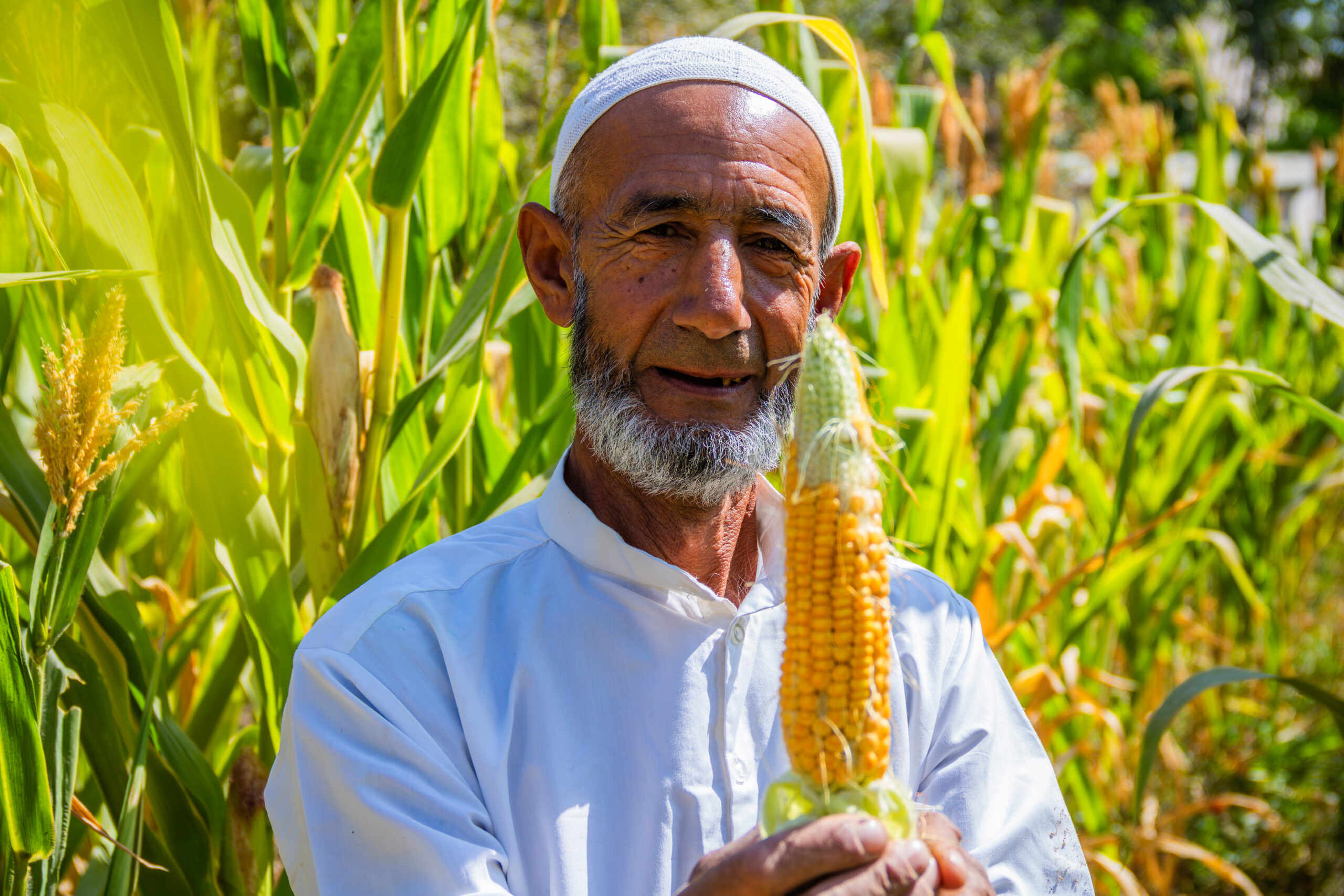A lifetime of struggle, a beacon of hope: Meliknor's Journey from statelessness to stability in Tajikistan
A lifetime of struggle, a beacon of hope: Meliknor's Journey from statelessness to stability in Tajikistan

At 72-years-old, Meliknor has lived a life full of hardships. Born into a family of shepherds in Tajikistan, he spent his childhood moving from village to village with his father. His early years were defined by constant cross-border movement. Back then, the Central Asian countries were not separate, and were part of the former Soviet Union, so travelling between them was like moving between regions of the same country.
“I would always be travelling with my father from village to village, taking the flock to pastures,” says Meliknor. “I had to be with my father, I had no time for education.”
It wasn’t until the age of 16 that Meliknor first stepped into a classroom. By this stage, he was far behind in his education. After just four years, he was forced to quit, leaving his schooling unfinished.
When Tajikistan gained independence in 1991, Meliknor found himself in a precarious situation. His national identity was tied to a country that no longer existed – the Soviet Union. With nothing to show who he was or where he was from, Meliknor spent years living on the streets.
“I would do labour jobs during the day and sleep anywhere I could rest my head at night,” says Meliknor. “During one of these days, my documents were stolen along with the small amount of money I had on me.” Life was a lonely and relentless struggle.

A glimmer of kindness
Despite the harshness of his circumstances, Meliknor’s story took a hopeful turn when a compassionate individual extended a hand of kindness. This person offered Meliknor both shelter and an unofficial job as a gardener, providing him with the first hint of stability he had experienced in years. Although he now had a roof over his head, Meliknor still faced significant challenges. Without official identity documents, he had no access to State assistance, which, though modest, was desperately needed.
Restoring identity through the #IBelong Campaign
Meliknor’s situation began to change when he received legal assistance through UNHCR and its partner, under the framework of the #IBelong campaign. Launched in 2014 to end statelessness globally, the #IBelong campaign has been a lifeline for individuals like Meliknor, who are trapped in legal limbo. Meliknor received legal counselling throughout the process and financial assistance to obtain his identity documents. With these essential documents in hand, opportunities that had long been out of reach finally became possible.
With his new ID, Meliknor secured official employment and received a labour book – a critical document that allowed him to apply for a pension. After decades of hardship, Meliknor is now on the path to securing a pension that will provide him with the financial stability he has never known.

Even as Meliknor works toward improving his own life, his thoughts remain with others who are in need. At his place of work, he was given a small plot of land to cultivate vegetables for his own consumption. True to his nature, Meliknor chooses to share his harvest with others, often going without so that someone else might have a little more.
"All I need is a roof over my head, some bread, and a pack of yogurt," he says.
The bigger picture: ending statelessness in Central Asia
Over the past decade, Central Asian States have resolved over 218,000 cases of statelessness, including more than 52,000 in Tajikistan alone, thanks to strong government commitments and UNHCR’s #IBelong advocacy campaign. This progress, which has benefited individuals like Meliknor, has reduced the number of unresolved cases in the region to just 34,000 as of December 2024. Today, Central Asia accounts for one-third of all resolved statelessness cases worldwide. Building on this momentum, in 2023 Tajikistan adopted the National Strategy on Human Rights Protection for the period up to 2038, with its 2023-2025 Action Plan outlining steps toward accession to the Statelessness Conventions. In 2024, Tajikistan joined Kazakhstan, the Kyrgyz Republic, Turkmenistan, and Uzbekistan in adopting the Ashgabat Declaration on Ending Statelessness in Central Asia, reaffirming their collective commitment to eradicating statelessness across the region.
Like other aid agencies, UNHCR is affected by severe cuts in global humanitarian funding. Without donor contributions, UNHCR and partners in Central Asia will be unable to support people like Meliknor to confirm or gain a nationality, or governments to advance efforts to reduce and end statelessness. UNHCR is doing everything possible to continue protecting and assisting these vulnerable groups and is seeking additional support from donors and the private sector to sustain critical programs around the world.

Meliknor’s legacy of hope
Meliknor’s life has been shaped by loss and hardship, but it is also a story of hope, generosity, and resilience. With the support of UNHCR, he has regained his identity and the dignity that comes with it. His journey underscores the critical need to address statelessness – not just as a legal issue but as a fundamental human rights concern.
"Think about your children, get your identity documents sorted, secure a stable future for them," says Meliknor.

